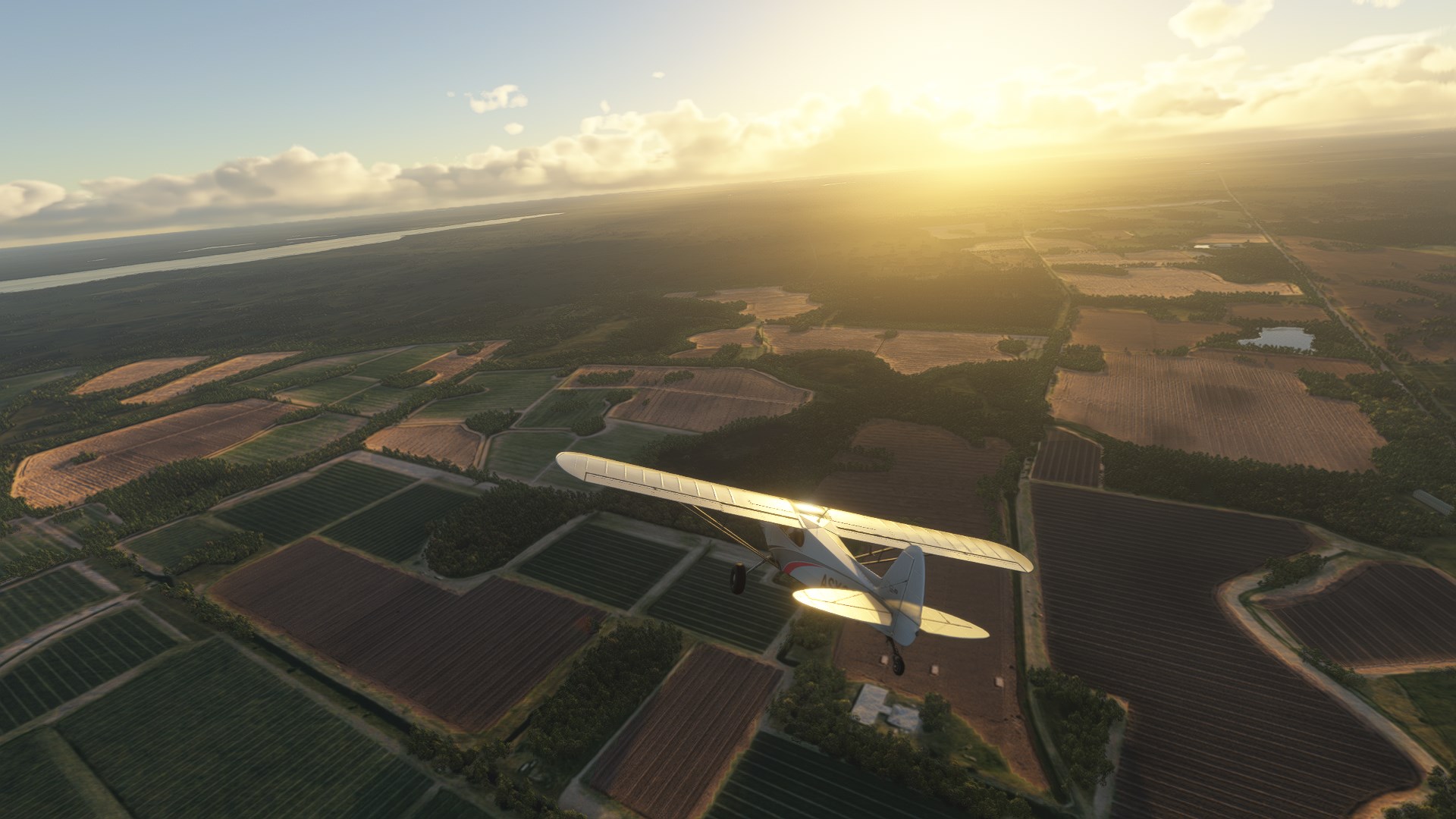In recent times, it seems that each year of releases brings a handful of titles that launch as duds. Sometimes, they’re flat-out broken, and other times, they’re simply far from the vision that was initially promised. Microsoft Flight Simulator 2020 was not exactly one such title, but in the four years since its release, Asobo has carved it out to be far more complex and improved than its launch build.
The team has released over a dozen major Sim Updates, a variety of World/City Updates, and three sizeable Aircraft & Avionics Updates. The 40th Anniversary Edition update in 2022 also provided a generous helping of returning aircraft and new handcrafted airports all for free. Of course, this has all been paired with the dizzying array of free and paid add-on content. MSFS 2020 has truly lived a fulfilling life and all of that hard work has set the foundation for Microsoft Flight Simulator 2024. Short of deserving it, simmers are demanding that this next project be ready to go from day one.
Growing pains
In the 1.5-hour-long Microsoft Flight Simulator 2024 Global Preview Event video that was released back in October, Jörg Neumann, the head of the MSFS team got things rolling by breaking down all the accomplishments during the early phases of MSFS 2020. This overview highlights the staggering amount of work Asobo and its partners poured into the sim—a feat that continues to impress to this day.
Despite all these efforts, however, there are still some glaring omissions such as a poor ATC system, rudimentary implementation of ground services for airliners, live traffic mismatching, and some default planes to this day don’t even have interactive doors.

Looking back at the sim’s earlier days, one standout issue was that it took well over a year before many players saw decent performance gains. This resulted from the release of a Sim Update that coincided with the release of the Xbox editions of the sim back in Summer 2021.
While Asobo heralded the update as a milestone due to some optimization techniques it learned from porting the sim over to consoles (the first of its kind,) some users to this day wholeheartedly believe a fidelity downgrade was implemented that continues to persist; a point that is still contested.
Speaking of updates, Microsoft Flight Simulator 2020 did previously have a nasty habit of moving two steps forward and one step back with many of its deployments.
Up until a few years ago, anxiety over the release of a new Sim Update took hold of some members of the community, fearing that their build that they “finally finished tweaking” would be rendered unstable yet again, and content that was previously okay would be broken.
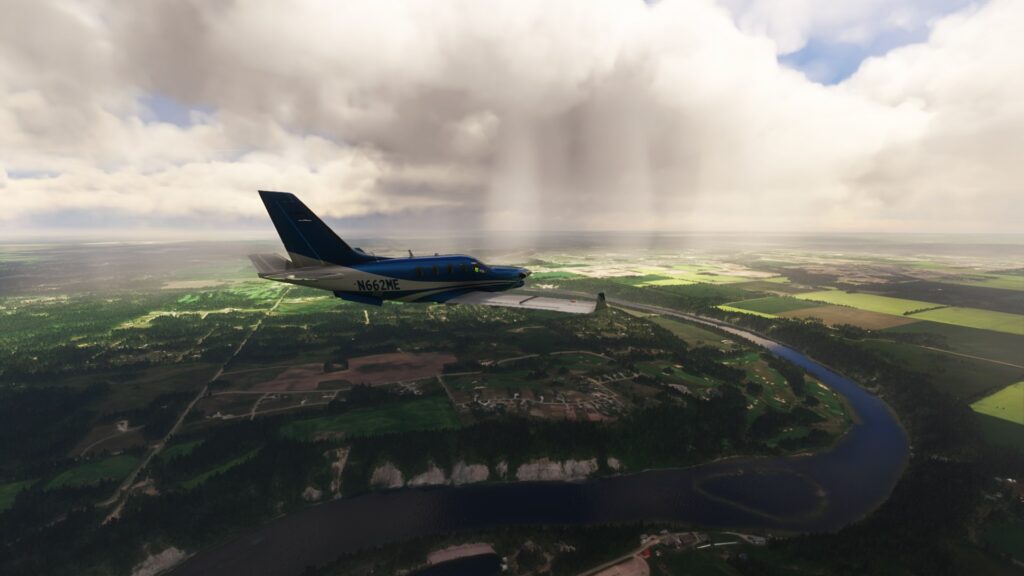
Back in 2021, Asobo opted to slow its update cadence down to facilitate more testing for new updates. The hope was that fewer issues would sprout up after the fact. To an extent, that formula did pan out well, though with the requirement of much-needed patience from the community.
As someone who’s genuinely loved Microsoft Flight Simulator 2020 from its inception to now, I’m not trying to spin up a bout of revisionist history to paint it as some clunky mess that took forever to be fixed.
I’ve highlighted (some) of its most egregious issues, but its legacy is filled with many glowing achievements. The primary one is that it managed to deliver one of, if not the most comprehensive civilian flight simulation experience to date.
That is what Asobo is seeking to exceed—the gold standard that it set itself.
Ascending higher
“Limitless” appears to be the codename for Microsoft Flight Simulator 2024. It’s in the filenames of the first set of reveal screenshots from 2023, and it also happens to be the name of the app shortcut on PCs that have the sim pre-ordered.
During the aforementioned Global Preview Event, Neumann, whilst citing all of the advancements that have been made with Microsoft Flight Simulator 2024, mentioned how the new title “is a sim, not a game.”
Whether it was an intentional reference or not, this descriptor is a consistent point of contention within the sim community. To oversimplify, for some folks, a title can only be considered a ‘real sim’ if it’s complex enough. Otherwise, it should be referred to as a ‘game.’

As you might imagine, the threshold of complexity varies depending on who you ask. Nevertheless, the fact that Neumann made this statement with confidence shows how proud he and the rest of the massive development team are of their work. Asobo wants everyone to understand just how mammoth of a project Microsoft Flight Simulator 2024 genuinely is.
“Limitless” is a fitting adjective considering what MSFS 2024 is seeking to accomplish from both a technological standpoint as well as its gameplay (sim-play?) content.
Just the sheer amount of different aircraft and their varied flight mechanics, along with the assortment of mission types is an unprecedented feat. Not to mention the drastic upgrade to the visual suite, from enhanced lighting effects to far more sophisticated renditions of ground detail and topography on a literal global scale.
This is very much a ‘product of the times.’ Arguably, it couldn’t exist even a decade ago considering its complexity.
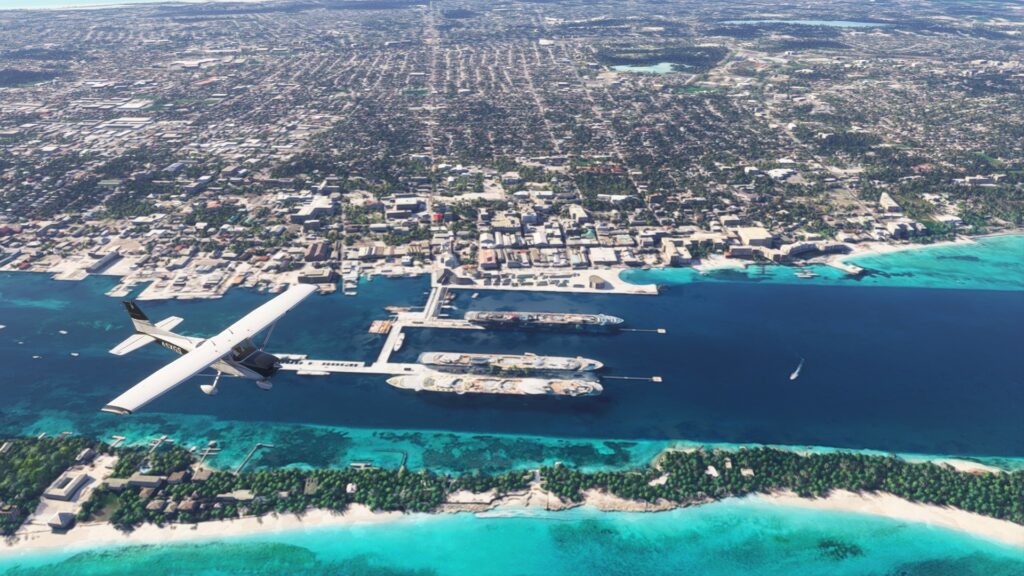
Not too dissimilar from how many aircraft are manufactured today, Asobo has amassed a plentiful array of staff and partners from all over the globe that have crafted different core parts of the sim.
From one team collecting swaths of geographical data and building the new “digital twin of Earth,” to others creating a database of all of the world’s heliports—there are so many cogs turning behind the scenes.
Curiously, Neumann even confirmed how some of the project’s work will be shared for use elsewhere, showing that this is as much a massive utility project as it is a tentpole of technological entertainment.
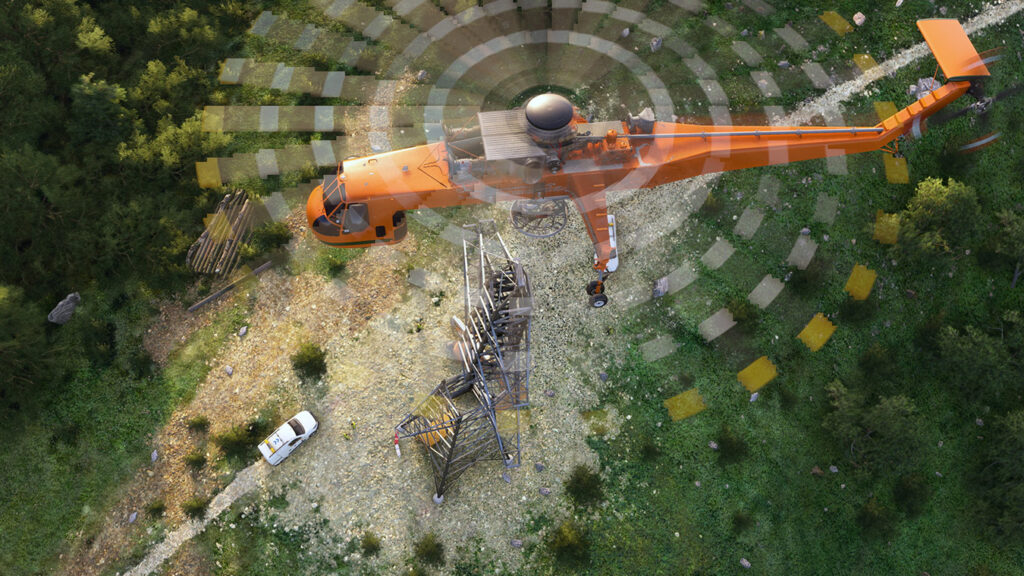
Microsoft Flight Simulator 2024 is selling itself not just on the notion of it being a massive upgrade to its predecessor, but the easily the most ambitious and feature-rich consumer-grade flight simulator to date. There will be a lot of content for players to unpack right out of the box.
Of course, as established at the onset, Asobo is actually going to need to follow through on all of these lofty promises.
Commitments of grandeur
It has become an unfortunate trend in the gaming industry to promise an ocean and deliver a swimming pool.
For the most part, Asobo has spared itself from sharing that label thanks to all the work it has done with Microsoft Flight Simulator 2020. It was a monolithic task to build and flesh out such a large project, and despite it still having some issues, Asobo has proven capable of delivering on its visions. But it took time for that vision to materialize.
Microsoft Flight Simulator 2024 was birthed from the drive to take those concepts even higher; to be even more ambitious. In fact, it exists as a successor because Asobo outgrew the capabilities of the engine used for MSFS2020. Essentially, it’s physically beyond the limits of the outgoing frontrunner. (Oh, yes, that’s why it’s “limitless”!)

Given the share scale of this project, much like its predecessor, MSFS 2024 should rightfully be considered a product of its circumstances. “Microsoft” isn’t just in the name; these sims only exist because of the extensive funding and connections offered by them being Microsoft products. Clearly, the company has spared no expense.
All that’s left now is nailing the execution.
The hope, one that’s also been supported by Asobo, is that all of the hard work poured into Microsoft Flight Simulator 2020 will serve as a solid foundation for its successor.
No longer is this the big, extremely ambitious new live service-style sim that’s still being molded. Now, it’s time to take the last 4+ years of experience gained and make good on delivering a solid product from day one. After all, many of MSFS 2020‘s shortcomings are intended to be fully built out in MSFS 2024.
Nevertheless, some simmers are already hesitant about diving head first into MSFS 2024, simply due to the expectation that there will be some massive bugs and other issues that need to be ironed out; MSFS 2020 wasn’t spared that reality.
An issue-free release is not entirely realistic, but waiting weeks and months for hotfixes and big patches should not be the likelier alternative, nor should the expectation of even more updates to introduce core features be on the deck. At this point, we should be well past those turbulent clouds.
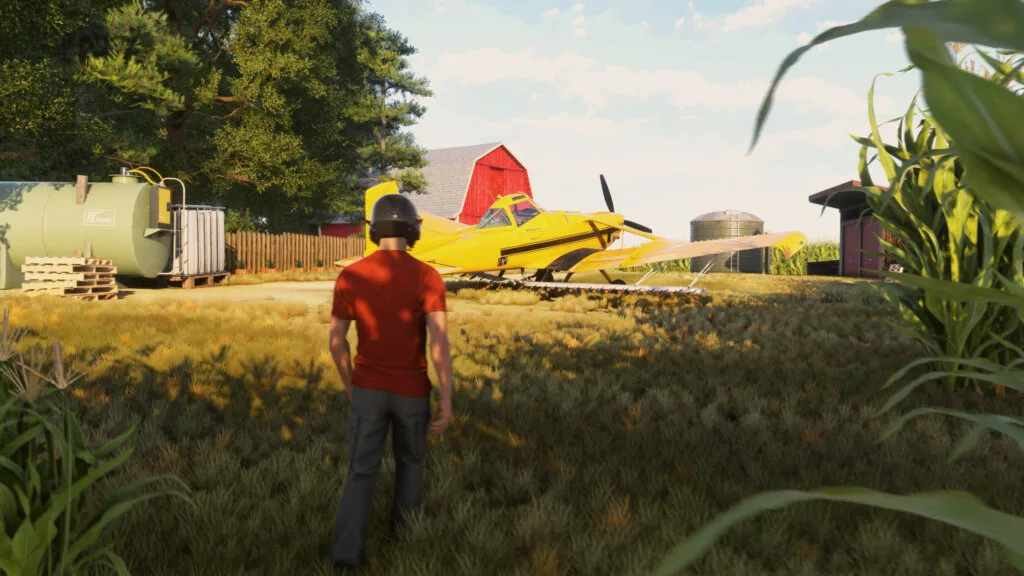
Asobo and its partners have managed to revive Microsoft’s longest-running game franchise with stunning fidelity. It’s now a marquee title of the Xbox Game Studios portfolio and a masterclass project of a technological showcase. In a way, Asobo has cut its work out for itself.
The sim world is being promised a new, never-before-seen level of complexity and depth. The thousands of man-hours and (no doubt) millions of dollars of R&D put into this project should all speak for itself.
If this is the genre’s future, here’s hoping smooth skies lay ahead.
More Microsoft Flight Simulator 2024 content:
Global release times for Microsoft Flight Simulator 2024 | Microsoft Flight Simulator 2024 PC system requirements

